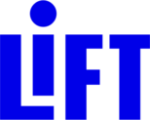“We judge what we don’t understand.” -Anonymous
Those living in poverty are often characterized as lazy, unmotivated, and uneducated. The notions of the welfare queen and the free rider permeate modern discourse surrounding poverty and shape opinions of government social service programs. Poverty is attributed as a fault of the individual, not a product of situational factors or a widespread systemic phenomenon.
As these stereotypes reveal, there is a general lack of understanding–a lack of empathy when it comes to poverty. Perhaps we don’t try to understand poverty because doing so would reveal problematic truths about our own community. Perhaps, coming to terms with the reality of poverty would diminish the power of the American Dream, in which determination and a strong work ethic have the capacity to catapult any individual to economic success. As a result of this failure to understand poverty, passive judgement replaces active solutions.
However, on July 10, 230 Bank of America Student Leaders had the opportunity to develop a personal understanding of poverty. Equipped only with a name and biography that provided details on their background, family size and employment status, students entered LIFTopolis, a unique, interactive poverty simulation that allows participants to step into the shoes of a LIFT parent member. Over the course of a “week” (four, 12-minute periods), the students attempted to navigate the LIFTopolis social service system in order to accomplish a distinct set of goals that ranged from securing child care to obtaining Social Security benefits. In one hour, the students experienced the reality of the daily struggles that low-income families face.
From the moment the first whistle signaled the commencement of the simulation, a frenzied blur of action began. Students frantically attempted to determine which service providers supplied identification cards, housing certificates, or Social Security benefits. LIFT, Bank of America and Close Up Foundation volunteers perfectly executed their roles as employees at social services, from the DMV to the Housing Authority, often providing unhelpful responses and apathy towards the plights of the participants. In the midst of the frustration and confusion caused by many social service providers, I had the opportunity to serve as a benevolent employee at ELEVATE, a nonprofit based on LIFT. Despite our altruistic mission, my partner and I seemed to be fighting an uphill battle. Due to limited resources, we were only able to aid 16 participants and turned away many participants who attempted to secure our services.
While sit-ins at the DMV, daring escapes from the Sheriff and feisty responses from determined student leaders evoked laughter from both participants and facilitators, the underlying tone was somber as students came to terms with the futility of their situations. Waiting in stagnant lines, negotiating with unhelpful employees and cycling through service providers multiple times, students were frustrated by the complexity of the system. By the third day, many participants, overwhelmed by an overabundance of failures and lack of direction, didn’t know how to proceed. Most attempts to complete a goal were stymied by circumstances and systems beyond their control.
Following the conclusion of the 48-minute “week,” the student participants had the opportunity to reflect upon and discuss their experience. When asked to describe the past hour, many students expressed feelings of frustration, confusion, anger and helplessness. Overwhelmingly, students agreed that the most frustrating component of the simulation was the lack of clarity. When approaching different service providers, participants didn’t know what documentation or qualifications would be required to receive assistance. Thus, despite the presence of these assistance agencies, many services were inaccessible to LIFTopolis participants. One student’s response encapsulated this experience. He exclaimed, “I didn’t realize how difficult it was to get assistance, from the government, from anybody.”
While LIFTopolis builds empathy, it simultaneously elicits a strong desire from participants to enact change and encourages them to generate solutions. As part of the debrief exercises, students applied their experience in LIFTopolis to creative solutions aimed at ameliorating the obstacles they encountered. Ideas ranged from apps that compiled nonprofit and government resources to pamphlets that explicated the process for receiving government benefits.
For those who live in poverty, a frustrating day spent navigating the social services sector is followed, not by a debrief session and a buffet lunch, but by the possibility of eviction because they were unable to secure Section 8 Housing or hunger because they sacrificed a day of work and wages in an unsuccessful attempt to obtain SNAP. Despite this discrepancy, LIFTopolis provided 230 student participants and tens of adult volunteers with the capacity to approach poverty with empathy instead of judgement. In both the sheltered LIFTopolis simulation and the community at large, solutions begin with understanding.
This blog post was written by Amalia Frohna, a 2018 summer intern at LIFT’s national office.
